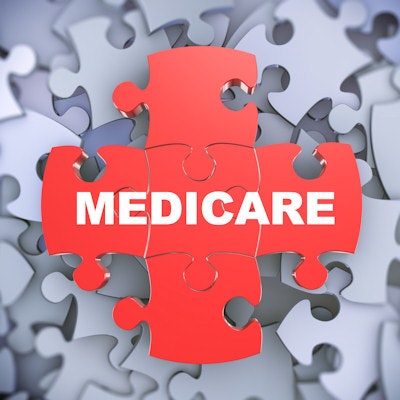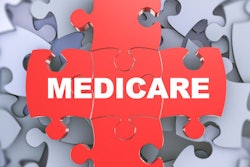
Medicare will not pay for dental benefits under a new proposed $1.75 trillion U.S. spending plan released on October 28 by the Biden administration, according to news reports. This leaves an estimated 20 million Medicare recipients without dental coverage.
The future of a Medicare dental benefit has been uncertain since lawmakers and the Biden administration were tasked with whittling down the initial $3.5 trillion U.S. congressional proposed budget, which called for several social and health initiatives, including adding dental, vision, and hearing benefits to Medicare. Adding all three was estimated to cost more than $350 billion over a decade, and the hearing benefit is the only one to survive under the new proposal, according to reports.
"Simply put, we view this as just another step in the process," said Michael Graham, senior vice president of ADA government and public affairs, in a statement. "We are continuing to educate Hill offices on the ADA's position."
Though many saw adding a dental benefit as making oral healthcare accessible to more patients, the addition to Medicare Part B has been a controversial topic in organized dentistry.
In September, the ADA, the American Dental Education Association (ADEA), and nine other dental professional organizations sent a letter to Congress expressing their opposition to adding a dental benefit to Part B. They wrote that expanding the benefits through Part B would not meet the needs of dentists and Medicare patients.
Recently, the ADEA strengthened and clarified its stance, noting that it supports legislation that "expands Medicare coverage to a broad range of oral health care services for all."
Additionally, the ADA Legislative Action Center sent an alert to dentists urging them to contact lawmakers and voice their opposition to adding a dental benefit to Medicare Part B. The ADA has said that the expansion under Part B would fail to appropriately reimburse dentists and would lead to significant administrative, technical, and programmatic requirements that wouldn't be best for recipients.
A better option, according to the ADA, is for the government to provide comprehensive dental benefits only for low-income seniors in a separate Medicare program. Under the ADA's proposal, seniors with incomes up to 300% of the U.S. poverty guidelines would be provided dental benefits.
Though the $1.75 trillion proposed budget may gain full support from Democratic legislators, it is unclear if it will have the backing of enough Republicans to get the spending plan passed.




















